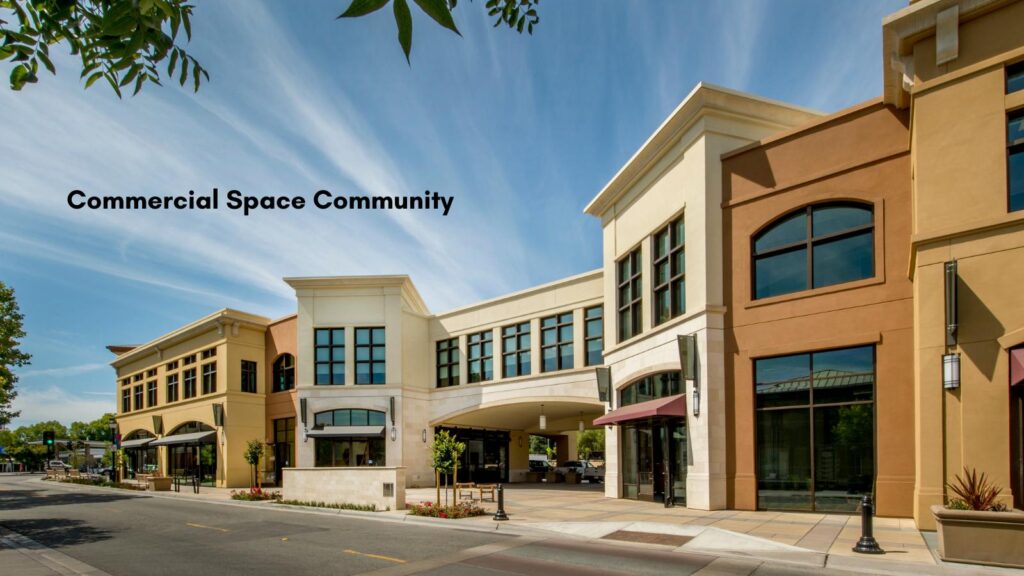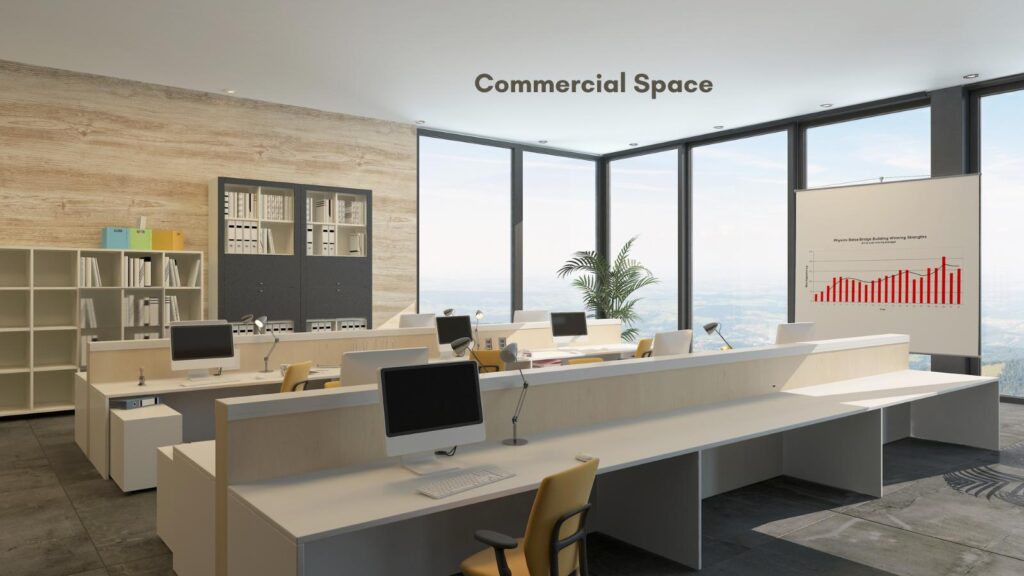Most people know that when house hunting for personal reasons, it is essential to see what a property looks like now to address its strengths. But when searching for a commercial space to purchase, a massive milestone in your business life, you may find it hard to compromise.
After all, who doesn’t want the best possible commercial space for their company, which also serves as a viable asset the business owns?
But just like seeing an open plan space or the landscaping opportunities in a regular household is wise, seeing what commercial opportunities lay in a given office is helpful. In this post, we’ll discuss a few strengths you may look towards or look through to make your decision:
Table of Contents
Location & Community Integration
The surrounding area of a commercial property often matters more than the building itself. A great location might not look perfect, as it might be near a busy crossroads or tucked away on a side street.
Yet it’s wise to consider the foot traffic patterns, the local businesses already operating there, and how the community views that spot. Sometimes, an area that seems quiet now shows signs of upcoming development, like new residential buildings or planned transport links.
The local council might even have improvement schemes in the works. Knowing the neighbors helps because a vibrant business community might be there.

Noise Pollution Acceptability
Noise levels that seem annoying during a viewing might work in your favor. A train line or busy road could bring regular waves of potential customers, and modern soundproofing is pretty worthwhile for the interior environment.
Some businesses even thrive on a bit of background buzz, as it can make a café feel more vibrant or help maintain privacy in professional offices. If the space is noisy, it might even have reduced limits on added noise pollution, so perhaps a workshop could be a perfect fit here.
Condition & Repair of Commercial Space
Looking past surface-level wear and tear could reveal a property with excellent foundations and plenty of potential, especially if you saved money for the renovation. A building’s essential systems, like plumbing, electrical, and HVAC, matter far more than cosmetic issues.
Remember that you can use pressure washer parts, and a good management plan can help you improve the exterior aesthetics in the best way. Don’t forget that good ceiling height, natural light, and a practical layout are more critical than outcomes you’ll probably want to change anyway to match your brand.
Sometimes, older properties have unexpected benefits, like thicker walls that help with temperature control or original features that could add character to your business space and be part of your branding. Make sure to get a thorough building survey before you purchase, lest you make a mistake.
Conclusion: Commercial Space Investments
When considering renovating a commercial space, it is key to recognize its strengths. Ask yourself what its standout features are.
Maybe it has high ceilings, great natural light, or a convenient location. Highlight these assets in your plan before you buy or get retail space for lease.
Consider the space’s flow and how it can accommodate your needs. Make practical choices, from layout to materials, that align with your goals.
Always watch your budget, but don’t be afraid to invest in quality. Quality matters when purchasing commercial real estate for sale. With some vision and thoughtful planning, you can transform the space into something that genuinely meets your standards.
Investing in Commercial Space: FAQs
How does investing in commercial space differ from residential real estate?
Commercial real estate often involves longer lease terms and higher rental yields compared to residential. It’s also subject to different market dynamics, such as business cycles instead of home buyer trends. Plus, commercial properties can include offices, retail, and industrial sites—each with its considerations.
What factors should I consider when choosing a location for commercial investment?
Foot Traffic: This is especially crucial for retail spaces.
Local Economy: Areas with growing businesses may provide better opportunities.
Accessibility: Good transport links can enhance property value.
Zoning Laws: Ensure compliance with local regulations for intended use.
Is commercial real estate investment riskier than residential?
It can be due to market volatility and more significant economic impacts on businesses. Tenant turnover may be less frequent but can be complex to manage. However, risk varies based on property type and location.
What’s the typical return on investment for commercial properties?
Returns vary widely but generally range from 6% to 12% annually. Property type, location, and economic conditions will influence this rate.
Are there tax benefits to investing in commercial real estate?
Potential deductions include mortgage interest, maintenance costs, depreciation, and some operating expenses. Consult a tax professional for specifics on your situation.
What should I know about financing options for commercial properties?
Expect larger down payments, typically around 20% to 30%, compared to residential loans. Interest rates and repayment terms can vary, so consider options like commercial mortgage-backed securities (CMBS) or private loans.




